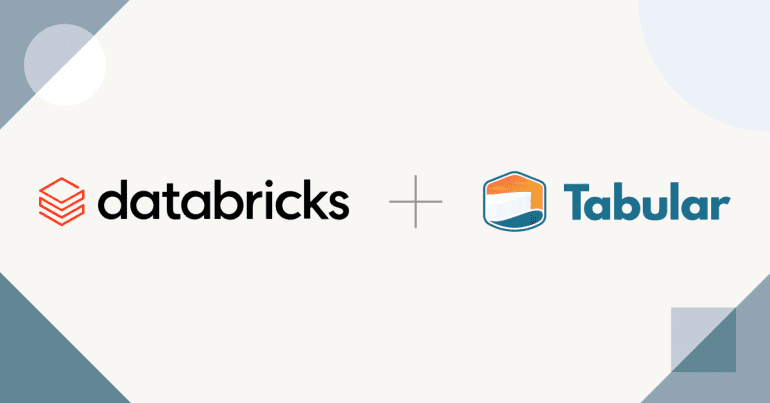- Databricks acquires Tabular, a data management company founded by creators of Apache Iceberg.
- Aim is to improve data compatibility within the lakehouse architecture.
- Short-term focus on integration with Delta Lake UniForm feature; long-term goal is to establish a unified standard.
- Lakehouse architecture bridges traditional data warehousing with AI workloads for enhanced productivity.
- Open-source data formats enable seamless access to data across various applications.
- Delta Lake project, spearheaded by Databricks, has gained significant industry traction.
- Tabular’s expertise in Iceberg project aligns with Databricks’ vision for interoperability.
- Databricks aims to bridge compatibility challenges between Delta Lake and Iceberg formats.
Main AI News:
In a strategic move, Databricks has announced its acquisition of Tabular, a prominent data management company. Founded by the original creators of Apache Iceberg, Tabular brings with it a wealth of expertise that Databricks aims to leverage to enhance data compatibility within the lakehouse ecosystem.
This acquisition signifies Databricks’ commitment to fostering collaboration within the Delta Lake and Iceberg communities, with a focus on achieving format compatibility across the lakehouse. Initially, the integration will be facilitated through Databricks’ Delta Lake UniForm feature, ensuring seamless interoperability in the short term. Looking ahead, Databricks envisions partnering with Tabular to establish a unified, open standard for lakehouse interoperability in the long run.
The Lakehouse Architecture: A Paradigm Shift in Data Management
Introduced by Databricks in 2020, the lakehouse architecture represents a revolutionary approach to data management, bridging the gap between traditional data warehousing and AI workloads. By consolidating disparate workloads onto a unified data platform, the lakehouse architecture aims to optimize enterprise productivity and democratize data access.
Unlike proprietary data warehouses, which often impose vendor lock-in, the lakehouse architecture embraces an open format. This format enables seamless accessibility to data across various workloads and applications, eliminating the need for data duplication and exportation. At its core, the lakehouse architecture relies on open-source data formats that support ACID transactions, ensuring reliability and performance for data operations.
Databricks’ Impact on the Industry
Since its inception, the lakehouse architecture has garnered significant traction, with 74% of enterprises now adopting this transformative approach. Central to this adoption is Databricks’ collaboration with the Linux Foundation to spearhead the Delta Lake project. With over 500 code contributors and a global user base exceeding 10,000 companies, Delta Lake has emerged as a cornerstone of the lakehouse ecosystem.
Driving Towards Interoperability
Tabular’s expertise, particularly in the development of the Iceberg project, aligns closely with Databricks’ vision for interoperability within the lakehouse. Despite their common foundation in Apache Parquet, Delta Lake and Iceberg have evolved independently, leading to compatibility challenges. Databricks is poised to bridge this gap by fostering collaboration within the open-source community, paving the way for enhanced interoperability between the two formats.
Ali Ghodsi, co-founder and CEO of Databricks, emphasizes the importance of unifying the lakehouse paradigm: “The lakehouse paradigm has seen widespread adoption, but fragmentation between Delta Lake and Iceberg impedes its full potential. Through collaboration with Tabular and the open-source community, we aim to enhance openness and reduce friction for customers, ultimately enabling them to unlock the full benefits of the lakehouse.”
Looking Ahead
The proposed acquisition of Tabular remains subject to customary closing conditions, with completion anticipated in Databricks’ second fiscal quarter. As Databricks continues to drive innovation in the lakehouse ecosystem, the integration of Tabular signals a significant step towards realizing the full potential of interoperability within the modern data landscape.
Conclusion:
Databricks’ acquisition of Tabular signifies a strategic move towards enhancing compatibility within the lakehouse ecosystem. By leveraging Tabular’s expertise and fostering collaboration within the open-source community, Databricks aims to address compatibility challenges and unlock the full potential of the lakehouse paradigm. This consolidation is expected to drive innovation and efficiency within the data management market, offering businesses greater flexibility and scalability in their data operations.

